There is a lot to unpack on the topic of how to recognize if you might have an emotional eating disorder.
Here are three facts, for starters:
1. Food is comforting, and that is ok.
2. All humans have emotions, and that is normal.
3. You are in charge of your own body and its needs, and that is your birthright.
Food is not just a source of comfort. It also keeps us alive. Food is a source of much more than keeping our organs working. It’s also associated with memories, events, people, and feelings. Even with pleasure.
Feelings are part of being human. People are wired to have emotions. We are not robots.
Both food and emotions tend to get a bad rap when combined, which doesn’t make a lot of sense.

So, to address the question of if you have an emotional eating disorder, let’s talk about eating, emotions, and being human.
First, all eating disorders involve emotions.
Anxiety and/or depression is often part of the mix. Other emotions like shame, disappointment, and jealousy may also be present.
Whatever the feelings are, they’re what led to the eating disorder, and they’re what keep it going.
One of the ‘functions’ eating disorders serve is to provide something other than feelings to focus on.
Instead of feelings, the focus is on numbers – on the scale, on the package label, on the clothing tag.
Another function of eating disorders is to numb emotion. Feeling nothing can be easier than feeling your feelings.
Mental health disorders of any type, and eating disorders in particular, also involve emotions.
To say an eating disorder is “emotional” is redundant. We don’t say “emotional anxiety”or “emotional schizophrenia.” So why add the “emotional” tag to eating disorders?
“Emotional eating disorder” is an odd phrase. There’s no such distinction between an “emotional” eating disorder and an “un” or “non” emotional eating disorder.
Eating disorders are eating disorders, with a wide range of emotions involved.
Second, emotional eating is not in and of itself an eating disorder.
Emotional eating is typically defined as responding to stress by eating, even when you’re not hungry.
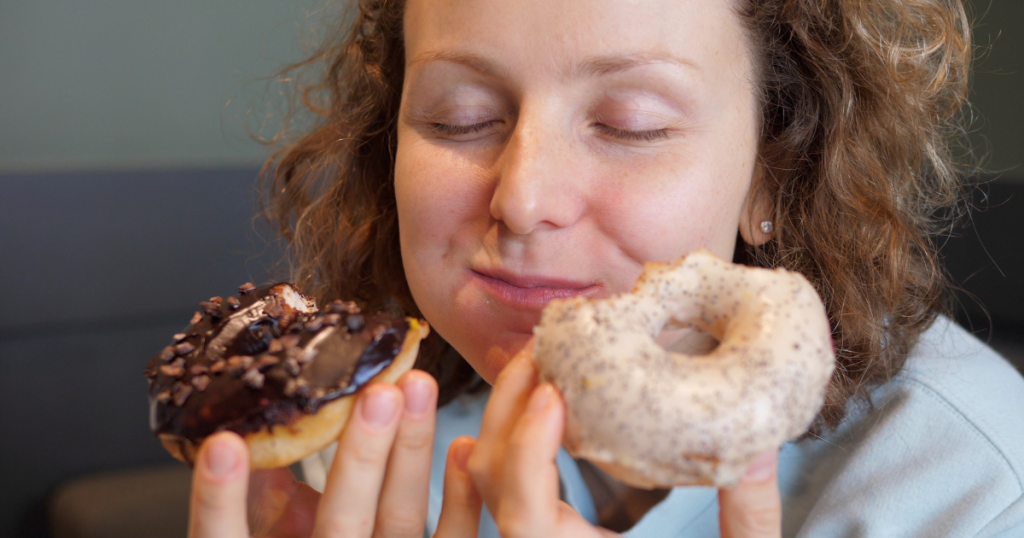
Sometimes other feelings — sadness, loss, anger, even joy and excitement — elicit emotional eating. Who hasn’t at times eaten due to feelings and not physical hunger? Everyone I know has eaten for reasons other than physical hunger. That doesn’t mean they have a disorder.
The kind of food you crave when you’re emotionally eating are, more often than not, comfort-type foods. Cake, cookies, pasta, chips, and other foods you may not allow in your regular routine are often the foods people emotionally eat.
Why do these foods have “craving” and “emotional eating” written on the label?
Two reasons….
When under stress, you may feel emotions that are uncomfortable.
It’s within our human nature to seek comfort when feeling discomfort. It’s a normal reaction.
When it comes to seeking comfort, you’re more likely to reach for food that is sweet and/or carby than for fruits or vegetables.
Maybe your go-to comfort food is mac-and-cheese. Or chocolate. Pretzels and chips perhaps?
No big deal. It’s OK! There is nothing inherently bad about eating for comfort to offset uncomfortable emotions.
Comfort food is considered “bad” because of Diet Culture.
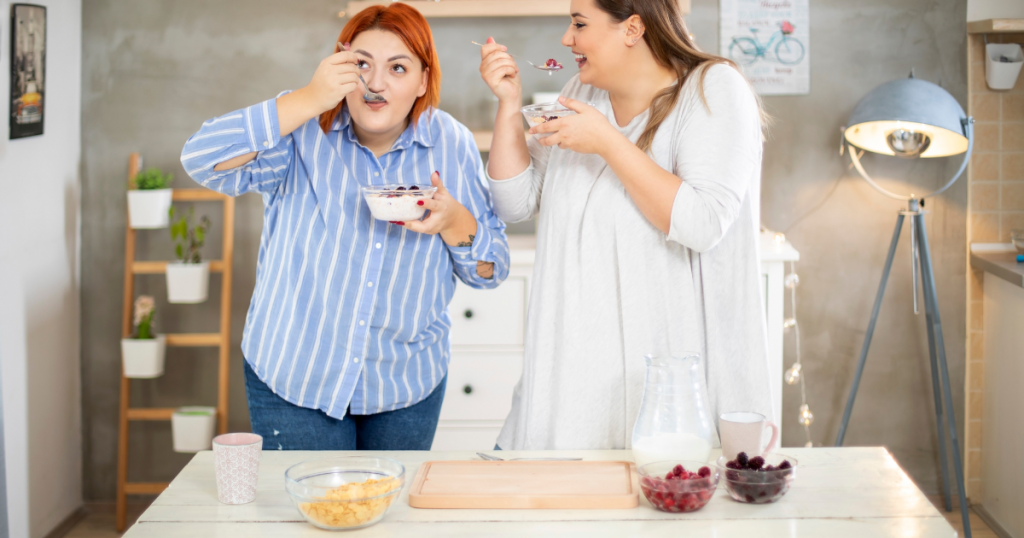
Foods people include and exclude in daily eating are based in Diet Culture’s rules.
The rules go something like this: Eating sweets is bad, and you’re bad if you eat them. So don’t. Plus, you’ll get fat if you eat ‘bad’ foods. Being fat is bad.
More Diet Culture rules include: You are morally superior if you only eat “clean,” have a “healthy lifestyle,” and/or track everything you eat.
Or maybe the Diet Culture rule of the day is to “go Keto”,” “plant based,” or “xyz.”
All these rules are driven by the desire for an unrealistic, thin body ideal.
The other driver of the rules is the tendency to equate body size with personal worth.
When you’re feeling an unpleasant emotion and live in Diet Culture, the natural inclination to reach for ‘forbidden’ food is intensified. You judge yourself. It becomes a rebellious act, and one for which you tell yourself you will repent for tomorrow…or Monday…or January 1…or whenever.
Another reason we’re more drawn to sweets and carbs under stress is our built-in wiring. High-energy food helps to sustain us.
Our ancestors never knew when food would be available again, especially during times of stress. So they had to be extra sure they consumed as much fuel as possible.
And stress back in the Stone Age was often more life threatening than stress in modern day. Eating was, and remains, essential for survival, especially in the event of a famine.
There are also hormones at play. Epinephrine and norepinephrine increase under stress. They then decrease happiness- and mood-balancing hormones, such as serotonin.
Food increases happiness hormones, so of course we gravitate to it for comfort! There is no place for blame or shame with this natural inclination.
Emotions and eating happen at the same time. One also happens before and during and after the other.
We all eat at times due to emotions. That isn’t a “bad” thing.
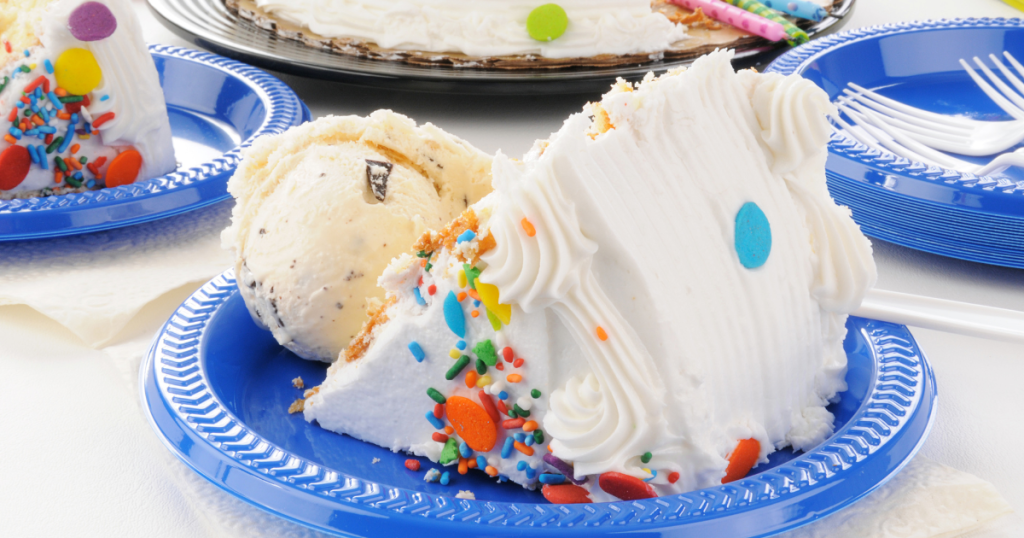
Cake and ice cream for birthdays are ways to celebrate, for example.
True, we sometimes “eat our feelings.” But that’s normal and not something to demonize.
In fact, eating due to emotions can be a way of taking care of yourself.
It’s one tool in your toolbox of many tools.
Eating a pint of ice cream for comfort, for instance, doesn’t mean you have an eating disorder. Maybe you’re feeling an emotion like sadness or excitement, and, if you were feeling something different, you would eat something different.
Eating due to emotions is not in and of itself “bad”.
Even Oscar Wilde wrote on this topic:
When I am in trouble, eating is the only thing that consoles me.
Indeed, when I am in really great trouble, as anyone who knows me intimately will tell you, I refuse everything except food and drink.
At the present moment I am eating muffins because I am unhappy. Besides, I am particularly fond of muffins.
Third, sometimes, when people talk about an emotional eating disorder, they’re talking about an eating disorder called Binge Eating Disorder.
Binge Eating Disorder is the diagnosis people are referring to when they say they have an “emotional eating disorder.” It’s often referred to as “compulsive eating” or “emotional eating.”
Binge Eating Disorder
It (BED) is the most common eating disorder and affects almost as many males as it does females.
BED is the name for when people eat a large amount of food, feel out of control when doing so, eat beyond fullness, and feel ashamed or guilty afterward. They may eat secretly and beyond fullness.
People of all different sizes and weights suffer from BED.
Usually when someone has Binge Eating Disorder, she knows. Each binge is typically followed by feeling guilty, disappointed, and maybe even angry or disgusted.
Unfortunately, the person typically then restricts eating, only to set herself up again to binge eat. The pattern repeats, and it can be a difficult cycle to break.
BED is highly treatable, especially when the provider’s specialty is eating disorder treatment. Full recovery from BED is more likely when working with a registered dietician and a licensed therapist. Success is even greater when the treaters are certified in Intuitive Eating and are Health at Every Size informed.
Take-aways:
You’re allowed to eat for nourishment of all types, even if you do not feel hunger pangs. (Plus, you may have missed hunger cues along the way, thanks to Diet Culture-informed attempts to mask hunger.)
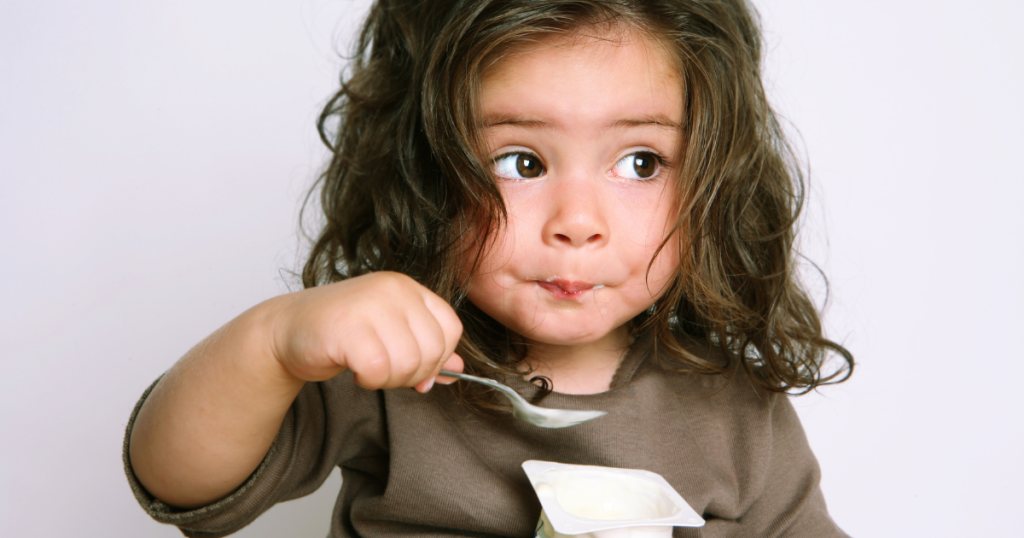
You’re allowed to eat what you want to eat, hungry or not.
If you find that emotional eating happens a lot and consistently makes you feel worse, it may be time to seek support from an anti-diet psychologist.
Emotional eating is not something to be ashamed of.
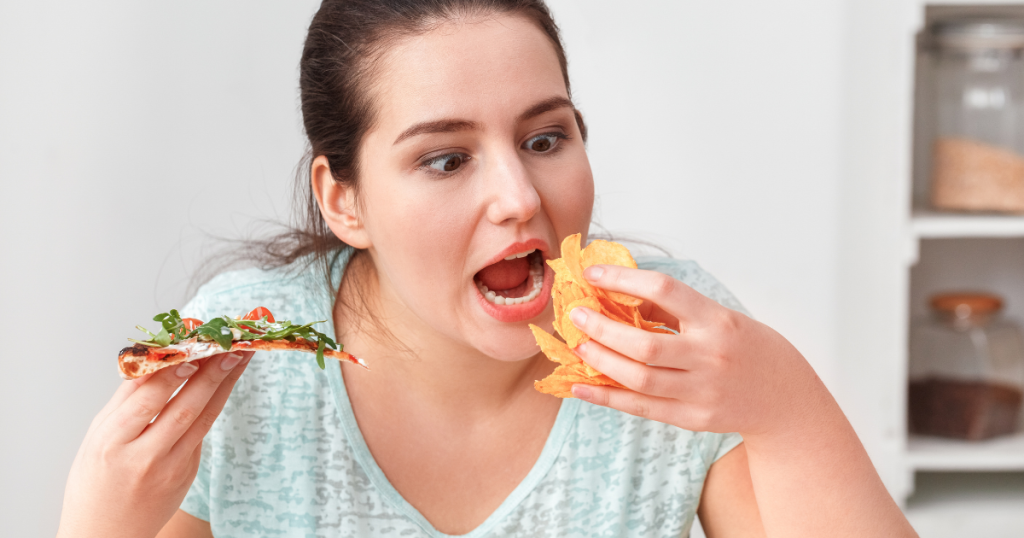
The reason we feel shame in the first place is that we give our credence to Diet Culture and its influence.
Emotional eating is not a disorder. Diet Culture is disordered, and that’s the problem.
Healthy eating exists in the context of emotions, not to their exclusion.
Both are essential for survival. And both can sit at the same table.
Dr. Elayne Daniels is an international coach, consultant, and psychologist specializing in eating disorders, body image, and High Sensitivity. She is anti-diet, Intuitive Eating certified and passionately believes comfort in your body at any size is your birthright. Contact her here for more information.






